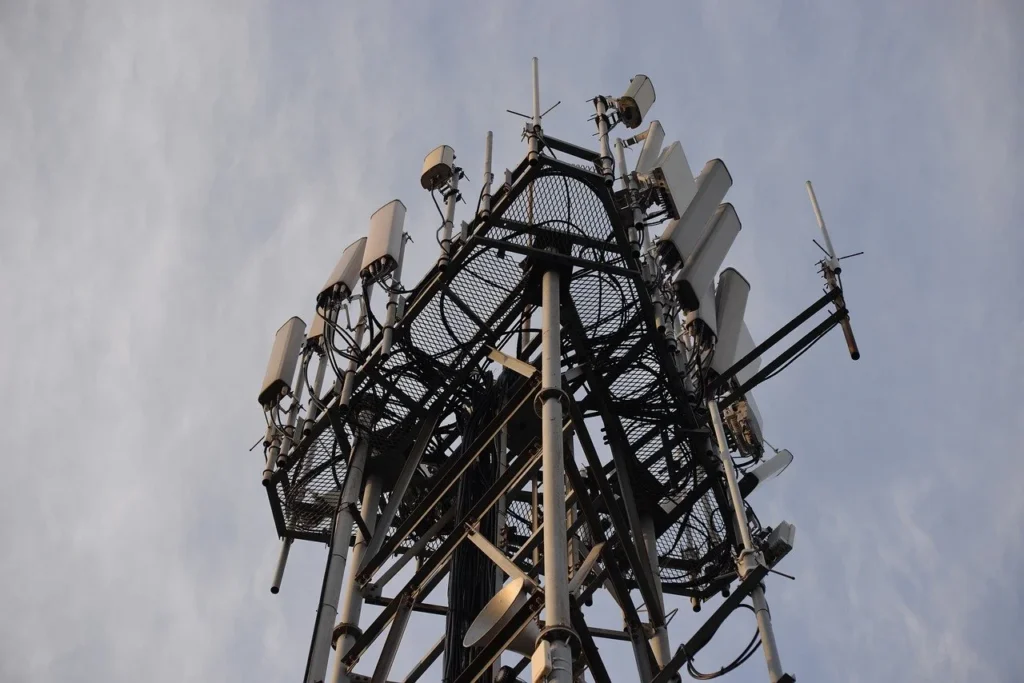5G Technology: A Catalyst for Industry Transformation

Reading Time
SHARE
In the digital age, staying connected has become essential for both businesses and individuals alike. Over the past decade, mobile technology has evolved at a breathtaking pace, culminating in the development of 5G technology, which promises to revolutionize industries, redefine business models, and reshape our daily lives. As the successor to 4G, 5G offers unprecedented speeds, lower latency, and the ability to connect a multitude of devices simultaneously. This next-generation wireless technology is not just an upgrade—it’s a fundamental transformation that will serve as a foundation for innovation across a wide range of industries.
What is 5G?
5G, short for the fifth generation of wireless networks, is designed to provide faster internet speeds, reduced latency, and more reliable connectivity compared to its predecessors. While 4G networks offer speeds of up to 100 megabits per second (Mbps), 5G networks can theoretically reach speeds of up to 10 gigabits per second (Gbps), making it 100 times faster than 4G. Additionally, 5G operates with significantly lower latency—measuring in milliseconds—making it ideal for real-time applications such as autonomous driving, remote surgeries, and cloud gaming.
The advantages of 5G extend beyond just speed. Its increased bandwidth allows for a greater number of devices to connect simultaneously, which is crucial for the growing number of smart devices in homes, businesses, and public spaces. In fact, 5G enables the Internet of Things (IoT) to thrive by creating seamless communication between interconnected devices, allowing industries to automate processes, enhance efficiency, and optimize performance in ways previously unimaginable.
The Impact of 5G on Various Industries
Manufacturing and Industry 4.0:
One of the most promising areas where 5G is making a transformative impact is in manufacturing. Dubbed as the backbone of Industry 4.0, 5G enables the adoption of smart factories, where machines, robots, and devices can communicate with each other in real-time. This leads to greater efficiency in production lines, predictive maintenance of machinery, and the ability to respond to issues before they become critical.
5G-powered automation can also reduce labor costs while improving production quality, as factory managers can make quicker decisions based on data from real-time analytics. The ultra-low latency of 5G ensures that critical tasks, such as operating precision machinery or managing hazardous operations, can be performed remotely and safely, offering a new level of flexibility for manufacturers.
Healthcare:
In healthcare, the arrival of 5G is opening up new frontiers in telemedicine, remote diagnostics, and even robotic surgeries. With the enhanced speed and reliability of 5G, doctors can conduct video consultations with minimal lag, improving the quality of remote care for patients, especially in rural or underserved areas. Moreover, real-time data transmission from wearable health devices allows physicians to monitor patients’ vital signs more accurately, enabling early detection and intervention for health issues.
One of the most groundbreaking applications of 5G in healthcare is its potential to support remote surgeries. Through 5G, surgeons can operate on patients using robotic tools from a different location with near-instantaneous feedback. This minimizes the need for patient travel and opens the possibility for specialized surgeries to be conducted across the globe without geographical barriers.
Transportation and Autonomous Vehicles:
Another sector set to benefit from 5G technology is transportation, especially the development of autonomous vehicles. Self-driving cars rely on vast amounts of data to make real-time decisions—data related to navigation, traffic conditions, and interactions with other vehicles on the road. The high-speed, low-latency capabilities of 5G are critical for these vehicles to process information instantaneously, ensuring safe and reliable operation.
Moreover, connected vehicle infrastructure powered by 5G can improve road safety by enabling communication between vehicles, traffic signals, and other road infrastructure. This can reduce accidents, optimize traffic flow, and lower congestion in urban areas. In the future, 5G-powered smart cities may manage traffic systems, emergency response, and public transportation networks autonomously, making city living more efficient and environmentally friendly.
Entertainment and Media:
The entertainment industry is also poised for significant changes with 5G technology. Virtual reality (VR) and augmented reality (AR) experiences will become more immersive and accessible as 5G networks provide the bandwidth required to stream high-quality content without buffering or latency issues. This creates new possibilities for gaming, live events, and virtual tourism, where users can experience environments as if they were physically present.
Moreover, the media and broadcasting industries can deliver higher resolution content, such as 8K video streaming, to users’ devices with minimal lag. Live events, such as sports games and concerts, can be broadcast to virtual reality headsets, providing audiences with front-row experiences from the comfort of their homes.
Retail and Smart Cities:
Retail is set to experience a significant transformation through 5G as well. Augmented reality shopping experiences, where customers can virtually try on clothes or visualize how furniture fits in their homes, will become more commonplace. Additionally, 5G-powered smart shelves can automatically track inventory, while real-time data analysis can provide insights into consumer behavior, allowing retailers to offer personalized shopping experiences.
The deployment of 5G is also critical to the realization of smart cities. 5G networks will power smart grids, optimize energy usage, and enable real-time monitoring of environmental conditions. This will lead to improved sustainability, efficient public services, and enhanced quality of life for urban residents.
The Future of 5G
While 5G technology is still in the early stages of adoption, its potential impact on industries is undeniable. As infrastructure and device ecosystems continue to evolve, 5G will likely become a foundational technology that underpins the digital transformation of industries across the globe. Its ability to enhance connectivity, enable real-time data processing, and power new innovations will undoubtedly drive growth and efficiency across the economy.
In conclusion, 5G technology is not just an incremental upgrade from 4G—it is a fundamental shift that will empower new business models, accelerate industry transformation, and redefine the way we live and work in a hyper-connected world.





